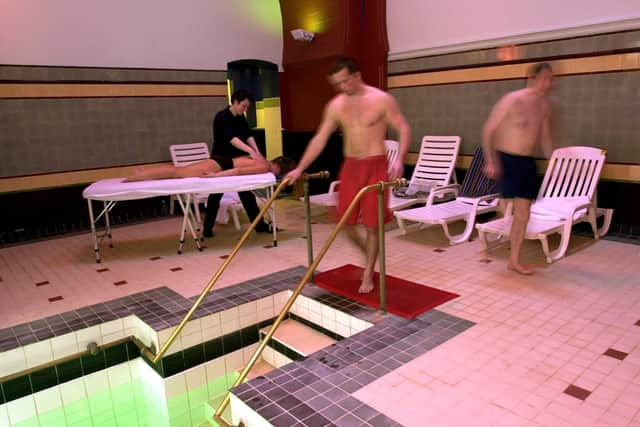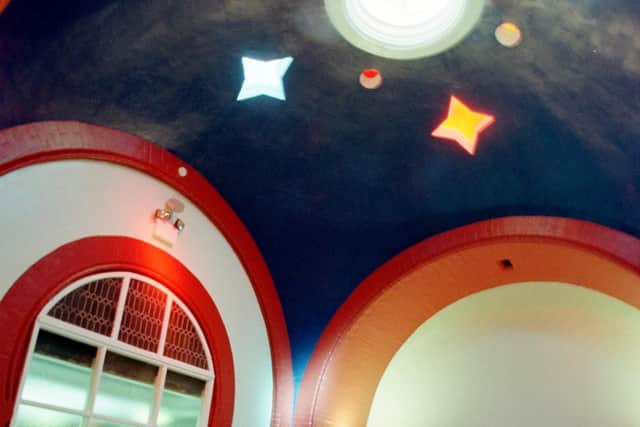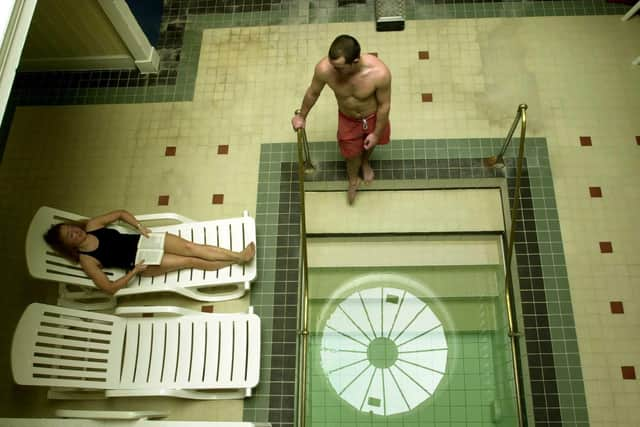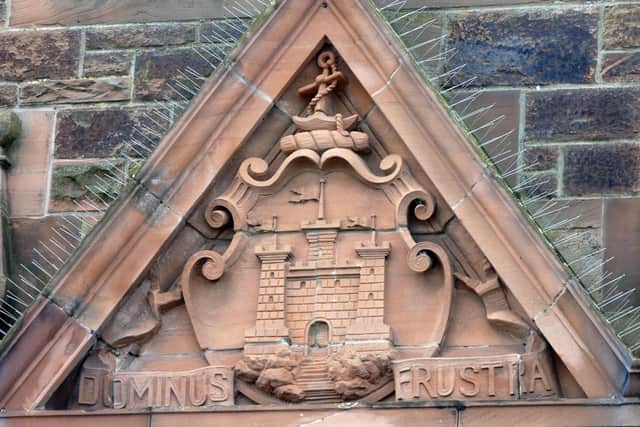From Towel Boys to tea in the sauna, the story of Edinburgh's historic Victorian Turkish Baths continues
Let us know what you think and join the conversation at the bottom of this article
Today, the Capital’s only Victorian Turkish baths fall under the auspices of Edinburgh Leisure who describe them as ‘the ultimate in relaxation therapy’, adding, ‘Our authentic, original Victorian-designed Turkish Baths are the last of their kind in Edinburgh... and offer a totally unique experience and the perfect way to relax after a hard workout, or simply to destress from the pressures of modern life’.
It wasn't 'modern' life that first attracted people to the baths, however. As well as the middle classes, who treated them as a treatment centre and health spa, generations of coal miners, coal merchants and workers from the local glass foundries were among those to first to take advantage of the baths simply to get rid of the grime and dirt of industrial life.


Advertisement
Hide AdAdvertisement
Hide AdAll followed the tried and tested routine which would see them work their way through three hot chambers – Tepidarium (warm), Calidarium (hot) and Laconium (hottest) - allowing the warmth to exert its therapeutic effect on muscles and skin, many repeating the cycle over and over before cooling down in the Frigidarium or relaxing in the Steam Room.
The building of the public baths was written into the Act to amalgamate Portobello with Edinburgh in 1896, with Edinburgh Corporation hailing the development a ‘flagship facility’ for the whole city.
Originally housing male and female ponds, 18 second class single baths, Turkish baths suite, gymnasium, reading room, smoking area and refreshment room, by 1936 the facilities had seen a sun-ray lamp and mixed bathing introduced, while the 1940s brought the venue an Aeratone water bath, in which pressurised water was forced through holes submerging seated swimmers up to their shoulders – an effect described as akin to being in a washing machine.
More familiar with the venue and its history than most, Mr Styles to the Evening News that a visit to the baths was a sociable occasion back then, he recalled, “Those were magnificent days. Everyone knew everyone else, and there was a huge sense of the baths being the centre of the community. You began to know who would arrive when, and what their idiosyncrasies were. The public nowadays are friendly, but in those days they were like family.”


Now Portobello Swim Centre, the baths were designed by Edinburgh City Architect Robert Morham in 1898. One of only three remaining Turkish baths in Scotland, the salt water baths were completed in 1901 and now have Category A listed building status from Historic Environment Scotland.
While the Turkish baths have maintained their original use, the facilities around them have evolved over the years. In 1934, Edinburgh Corporation modernised the premises introducing a filtration system for the seawater pool.
Some 33 years later, in 1967, a £48,000 refurbishment saw the building's indoor pool, changing area and toilets renovated along with the installation of an illuminated ceiling and metal-cored sheeting to conceal the original Victorian balconies. The original cast iron columns were also enclosed in mosaic and their ornamental column caps wrapped in mooring rope.


The centre underwent another renovation in 1998, which saw the pool modernised at a cost of £4.25 million. Then in 2019, it was announced that £2.5 million had been allocated to refurbish the interior of the building, create new changing rooms, upgrade fitness and gym facilities, and install energy-saving technology to make the baths more environmentally-friendly.
Advertisement
Hide AdAdvertisement
Hide AdToday, as well as the Turkish baths suite, the Centre is home to swimming pools, a gym and fitness studio.
Back in the day, however, the baths, which also boasted a Sudatorium and Russian bath, had Gothic-detailed changing stalls and a Moorish/Saracenic brick arch between the Tepidarium and Sudatorium . There was also a water fountain to the left of the arch and a domed ceiling, circular roof-light and four stars and circular openings originally filled with coloured leaded glazing.
At that time, sea water was heated by coal boilers to around 76F (24C), even the showers ran with hot and cold sea water. With the healing properties of sea water widely accepted, the baths were recommended by doctors for patients suffering from sciatica, rheumatism and nervous disorders.Recalling his first duties as a Towel Boy, Mr Styles added, “I was responsible for making sure the towels got to the laundry, got washed, spun, dried and neatly folded with the Edinburgh Corporation emblem bang in the middle”.A ticket for two shillings and sixpence entitled the bearer to a complete wash-down, during which they would be scrubbed with soap and a loofah and Mr Styles, who worked his way up to be a Turkish bath attendant, saw his duties include massage, a technique he learned along the way. Although another of his duties was dispensed with in the 1980s when new regulations meant that the Turkish bath attendant could no longer serve customers tea in the steam room.


Today, when you book a Turkish Bath session you get access for one hour 45 minutes at a cost of £8.40. All Turkish Bath sessions require pre-booking, which can be done here.
Thank you for reading this article. We're more reliant on your support than ever as the shift in consumer habits brought about by coronavirus impacts our advertisers.
If you haven't already, please consider supporting our trusted, fact-checked journalism by taking out a digital subscription
Comments
Want to join the conversation? Please or to comment on this article.
